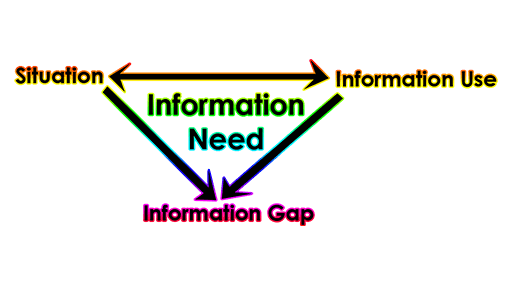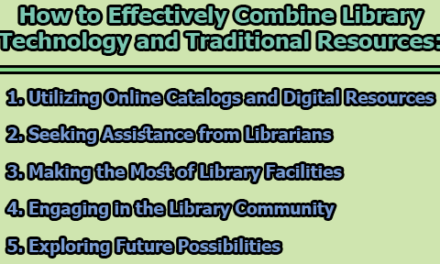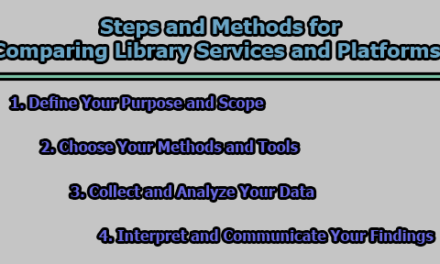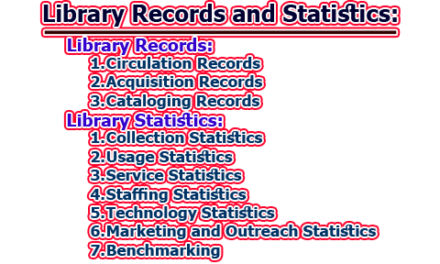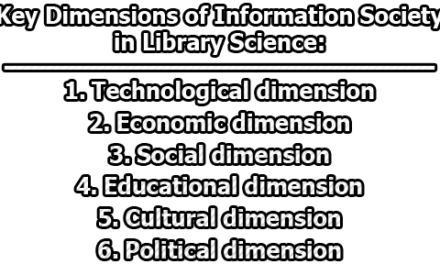The Conceptualization of an Information Need Based on Sense-Making Approach:
The sense-making approach to information needs conceptualizes the process of seeking and using information as a dynamic and iterative process that involves a series of cognitive and social processes. This approach recognizes that information needs are complex and multifaceted and that they are influenced by a wide range of internal and external factors. In this article, we will explore the conceptualization of an information need based on a sense-making approach and its implications for individuals and organizations.
The sense-making approach to information needs is rooted in the field of information science and is based on a number of foundational theories and concepts. One of the key theories that underpin this approach is the notion of sense-making, which refers to the process by which individuals make sense of the world around them. According to Weick (1995), sense-making involves the creation of coherent and meaningful mental models that enable individuals to understand and navigate complex environments.
In the context of information needs, sense-making involves a series of cognitive and social processes that are aimed at identifying, understanding, and resolving information gaps or discrepancies. These processes are influenced by a wide range of internal and external factors, including the individual’s prior knowledge and experience, their cognitive and affective states, the social and cultural context in which they are operating, and the specific task or goal they are trying to achieve.
One of the key principles of the sense-making approach to information needs is the recognition that information needs are dynamic and constantly evolving. Individuals are constantly processing new information and revising their mental models in response to changing circumstances and new insights. As a result, information needs are not fixed or static but are instead highly contextual and dependent on the individual’s current state of knowledge, goals, and motivations.
Another important principle of the sense-making approach to information needs is the recognition that information needs are highly subjective and context-dependent. Different individuals may have very different information needs depending on their personal backgrounds, social context, and professional role. For example, a doctor may have very different information needs than a lawyer or a teacher, even if they are working in the same general area of knowledge.
The sense-making approach to information needs also emphasizes the importance of social and cultural factors in shaping the way individuals seek and use information. Individuals are not isolated entities but are instead embedded in complex social networks and cultural contexts that influence their information behaviors and preferences. For example, an individual’s social identity, values, and beliefs may influence the types of information they seek out and the sources they trust.
In order to effectively conceptualize an information need based on the sense-making approach, it is important to consider a number of key factors. These may include the following:
- Cognitive factors: This refers to the individual’s cognitive processes, including their perception, attention, memory, and reasoning skills. These processes may influence the way individuals process and integrate new information into their existing mental models.
- Affective factors: This refers to the individual’s emotional states, including their motivations, values, and preferences. Affective factors may influence the types of information individuals to seek out and the sources they trust.
- Social factors: This refers to the individual’s social networks and cultural context, including their social identity, norms, and values. Social factors may influence the types of information individuals to seek out and the sources they trust, as well as the way they interpret and apply that information.
- Task factors: This refers to the specific task or goal that the individual is trying to achieve. Task factors may influence the types of information individuals to seek out and the sources they trust, as well as the criteria they use to evaluate that information.
- Environmental factors: This refers to the physical and technological environment in which the individual is operating. Environmental factors may influence the way individuals seek out and use information, as well as the availability and accessibility of different sources of information.
- Feedback loops: The sense-making approach recognizes that the process of seeking and using information is not linear, but rather involves a series of feedback loops. As individuals encounter new information, they may revise their mental models, which in turn may lead them to seek out new information or re-evaluate the information they have already encountered. These feedback loops are essential for effective sense-making and can lead to deeper understanding and more informed decision-making.
- Information behaviors: The sense-making approach also acknowledges that individuals engage in a range of different information behaviors, including scanning, browsing, searching, and evaluating information. These behaviors are influenced by a range of factors, including the individual’s cognitive and affective states, as well as the specific task or goal they are trying to achieve.
- Information sources: The sense-making approach recognizes that individuals may draw on a range of different information sources, including personal experience, social networks, and formal information systems. The sources individuals use may depend on a range of factors, including the nature of the information needed, the individual’s prior knowledge and experience, and the social and cultural context in which they are operating.
- Information use: The sense-making approach emphasizes that information is not valuable in and of itself, but rather it is the way that information is used that determines its value. Individuals may use the information for a range of different purposes, including problem-solving, decision-making, and learning. The way that individuals use information may depend on a range of factors, including their cognitive and affective states, the specific task or goal they are trying to achieve, and the social and cultural context in which they are operating.
- Information literacy: Finally, the sense-making approach to information needs emphasizes the importance of information literacy. Information literacy refers to the ability to effectively seek, evaluate, and use the information to achieve a specific task or goal. Individuals with high levels of information literacy are better able to navigate complex information environments and make informed decisions. As such, information literacy is an important component of effective sense-making and is essential for success in many professional and personal contexts.
Overall, the sense-making approach to information needs is a valuable framework for understanding the complex and multifaceted nature of information seeking and use. By recognizing the importance of cognitive, affective, social, and environmental factors, this approach provides a more nuanced and comprehensive understanding of the way that individuals seek and use information. This understanding is essential for individuals and organizations seeking to effectively navigate the complex and rapidly changing information landscape of the 21st century.

Library Lecturer at Nurul Amin Degree College

